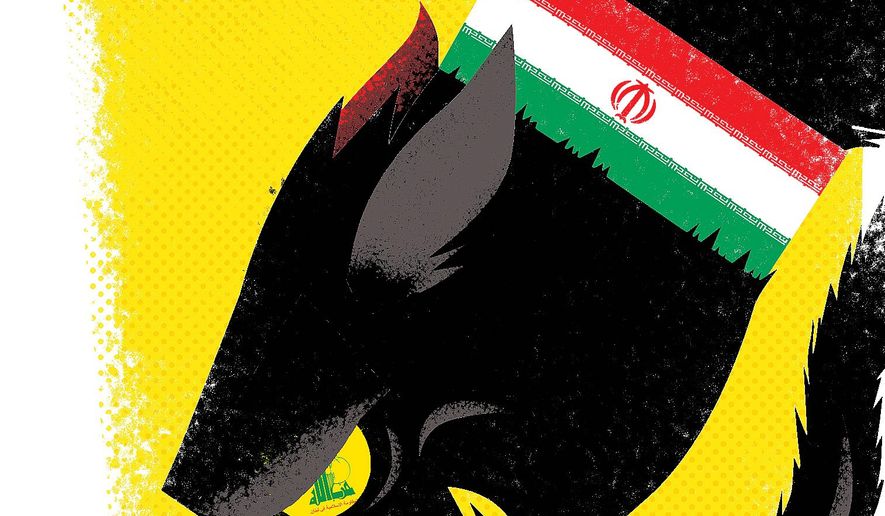OPINION:
Eleven years ago this month, Israel went to war with Hezbollah, Iran’s Lebanon-based Shi’a proxy militia. The fighting began when Hezbollah fired rockets at Israeli villages and missiles at Israeli armored vehicles patrolling the border. Three Israeli soldiers were killed. Two were kidnapped and taken into Lebanon.
They would be among the more than a thousand people killed during the 34 days that followed. Hundreds of thousands, in both countries, would be displaced.
The passage of U.N. Security Council Resolution 1701 on August 11 marked a halt to the conflict. The United Nations Interim Force in Lebanon (UNIFIL) was expanded and granted the authority to use force to ensure that southern Lebanon became free of “any armed personnel, assets and weapons” not under the direct control of the Lebanese government or UNIFIL.
It soon became apparent that UNIFIL would fail to accomplish that mission. Today, Hezbollah has an estimated 150,000 missiles of varying ranges and accuracy pointing at Israeli villages and cities — about 10 times what it had in 2006. UNIFIL sees nothing, knows nothing and, of course, does nothing.
There has been one restraint on Hezbollah’s rearmament: Israeli intelligence sometimes learns of Iranian shipments of advanced missiles. Airstrikes have destroyed at least some of these shipments en route.
Now, however, Iran has a new plan: Over recent months, its Islamic Revolutionary Guard Corps (IRGC) has been building fortified, underground missile production factories in Lebanon.
“We are fully aware” of the factories, Defense Minister Avigdor Lieberman told military correspondents in a briefing in Tel Aviv on Sunday. “We know what needs to be done . We won’t ignore the establishment of Iranian weapons factories in Lebanon.”
For the moment, the Israelis are giving diplomacy a chance, for example by briefing members of the U.N. Security Council, warning that the next war is bound to be more destructive and bloodier than the last.
Among the reasons: Hezbollah’s presence now extends well beyond southern Lebanon. It has taken control of Beirut’s port and airfields. It is the most powerful faction in Lebanon’s government. To fight Hezbollah while sparing Lebanon is no longer possible.
In addition, Hezbollah’s leaders have installed their missiles in (and under) homes, schools, hospitals and mosques. Their use of “human shields” ensures a high civilian death toll and, incidentally, blatantly violates international law. But they are confident that many journalists, U.N. officials and “human rights” groups will reflexively blame Israel, not them and certainly not Iran for the carnage.
Another indication that Hezbollah may be preparing for a new conflict: It has set up observation posts along the Israeli border, claiming these are part of an environmental effort called “Green Without Borders.” Yes, that’s right: We’re to believe that Hezbollah Secretary General Hassan Nasrallah worries about climate change. We’re not to notice that he has specifically mentioned that a leafier Lebanon will provide better cover to his fighters should Israelis return.
A complaint Israel filed at the U.N. was rejected last week. Spokeswoman Eri Kaneko said the lookout stations and “tree-planting activities” raise no suspicions. “UNIFIL remains vigilant,” she asserted.
It seems odd that Mr. Nasrallah should be eager for renewed hostilities with Israel now, a time when he is deploying fighters in neighboring Syria defending the Assad regime. He may believe that in Lebanon, as in Syria, Hezbollah can be reinforced by foreign fighters. In a speech last month, he threatened to open Lebanon’s borders to tens of thousands of Shia fighters from Iran, Iraq, Yemen, Afghanistan and Pakistan. That, too, would be a clear violation of UNSCR 1701 but don’t expect UNIFIL to respond.
The smart money says Hezbollah will do as the rulers of the Islamic Republic of Iran instruct. Their priority is to establish a Shia Crescent — an arc extending from Tehran to the Mediterranean, with Iran controlling Iraq, Syria, Lebanon and Gaza as well.
They also are establishing a foothold in Afghanistan and attempting to spread their Islamic Revolution into the Gulf States. Tehran’s theocrats view Kuwait and Bahrain as lost provinces that, in time, must be reclaimed. They view the Saudis and the Emiratis as heretics and enemies.
Iran has begun to establish a version of Hezbollah in Syria as well. Foreign Shia fighters already are being imported for this purpose.
Tough decisions lie ahead. Israelis know that if they strike first, they will be accused of aggression. But if they wait, they may have to absorb more — and more lethal — blows. Their missile defense system is high-tech and robust but it can be overwhelmed. Through intermediaries, the Israelis have reportedly warned Iran’s rulers not to expect to sit safely on the sidelines should a new war erupt.
Trump administration strategists in the National Security Council and Pentagon are not oblivious to the storm clouds gathering on this particular horizon. Among the tools they are considering: Designating the IRGC a terrorist organization and imposing tough new sanctions on Iran — linked to its support of terrorism and ballistic missile development, not the Iran nuclear deal. That would at least send a shot across the Islamic Republic’s bow.
Also worth considering: Insisting that whatever independent actors remain in the Lebanese government stand up to Hezbollah and replace its armed forces in the south as required under UNSCR 1701. If the Lebanese government isn’t up to the task U.S. assistance should end.
Finally, why not give UNIFIL, which is funded largely by the U.S., new leadership and a reinforced mandate to do the work it hasn’t done over the past 11 years? An effective U.N. peacekeeping effort is not easy to imagine. But what’s the harm in one more try?
• Clifford D. May is president of the Foundation for Defense of Democracies and a columnist for The Washington Times.




Please read our comment policy before commenting.